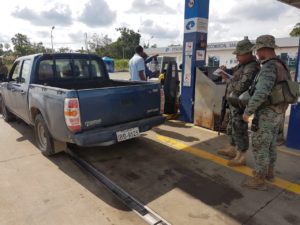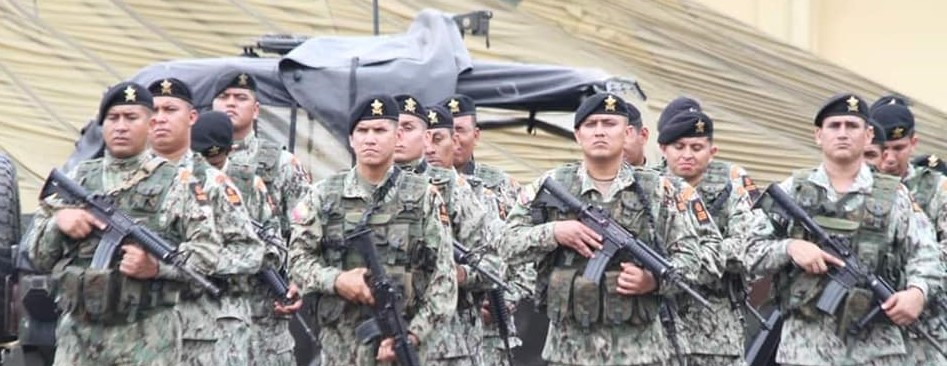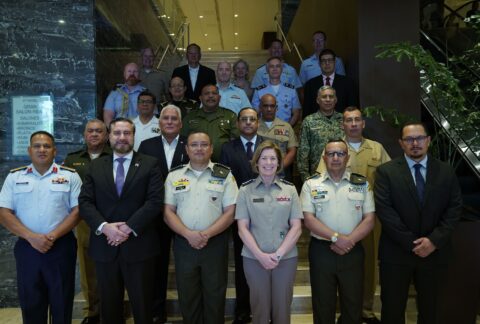Organized crime groups, urban gangs, bandits, and common thieves are threatening security in Ecuador, Voice of America reported.
To confront these criminals, the Ecuadorian government deployed 4,500 members of its security forces to its border with Colombia in the first week of June. A total of 2,100 soldiers, 2,400 police officers, as well as representatives from Customs and Immigration and the Attorney General’s Office integrated Joint Task Force Esmeraldas.
“We want to take the fight against these threats to the borders. This will alleviate the internal fight and the work of the National Police,” Ecuadorian Defense Minister Luis Lara Jaramillo said. “We soldiers are more united than ever and committed to the fight for the homeland. This is a battle for Ecuadorian families.”
Joint Task Force Esmeraldas, together with the National Police, intensified operations to control weapons, ammunition, and explosives in the province of Esmeraldas, reported Ecuadorian platform Saeta TV Esmeraldas on June 15.

The increase in security agents on the border with Colombia is intended to defend Ecuador’s sovereignty against the threats ofnarcotrafficking and transnational organized crime, Lara Jaramillo said. The effortsinclude mass patrols and support to other security institutions, the Ecuadorian Air Force said in an online statement.
“We have the strong support of the national government to strengthen operational capabilities, close the technological gap, acquire weapons and means of transport to face the threats of irregular armed groups, narcotrafficking, illegal mining, and human trafficking,” Lara Jaramillo said.
On May 30, Ecuadorian President Guillermo Lasso said that his country had started a “war against narcotrafficking and criminality, and the only way to win it is to protect the lives of Ecuadorian children and young people.”
Esmeraldas
Joint Task Force Esmeraldas’ operational structure has a unified command to carry out investigations and intelligence and curb the actions of organized crime gangs, Interior Minister Patricio Carrillo Roserosaid.
The combined force deployed in Esmeralda will have to face different situations such as youth recruitment, substance abuse, and white-collar criminals, Rosero said. “It is up to us to act united now — with a fragmented state we cannot confront delinquency and organized crime,” he added.
State of exception
The Lasso government decreed a state of exception in Esmeraldas, Manabí, and Guayas province in late April, due to the growing violence in the region.
“In Esmeraldas we face crimes of arms trafficking, smuggling, narcotrafficking, and illegal sale of hydrocarbons, among others. There is also a part of the population that protects criminals and is already accustomed to this way of life,” Commander of the Esmeraldas PoliceDepartment Javier Buitrón Flores told Ecuadorian TV network Teleamazonas. “I deplore the level of insecurity in Esmeraldas, where there were 202 violent deaths in the last five months.”
In an effort to guarantee the safety of civil society, the government is implementing measures that include the support of municipalities to work in the prevention of crimes and violence, Police and Army workin the fight against organized crime in the streets (with the help of citizens), and the process of rehabilitation of the penitentiary system, Voice of America reported.
“I call for a broad unity of the Ecuadorian society to fight the only enemy, which is crime. We do not play games or politicswith the safety of people; for security we work concertedly over any differences,”Lasso said via Twitter.









